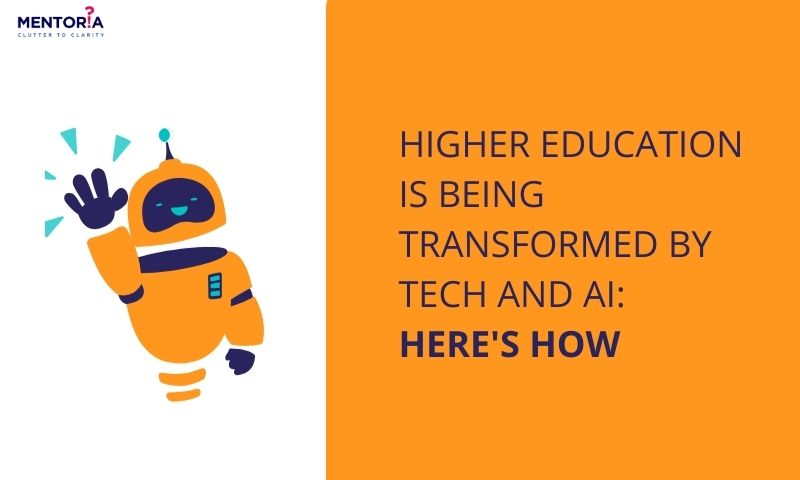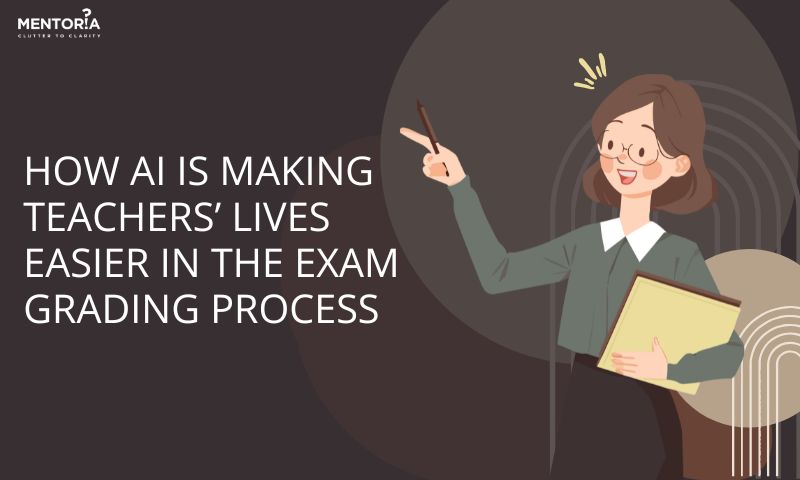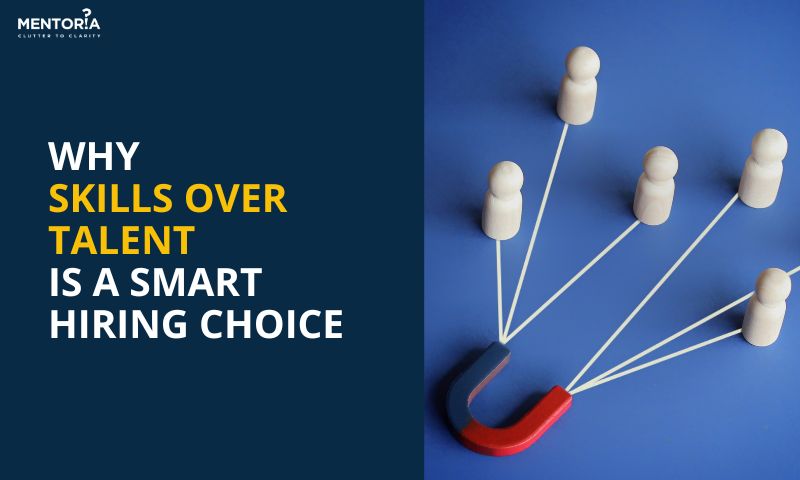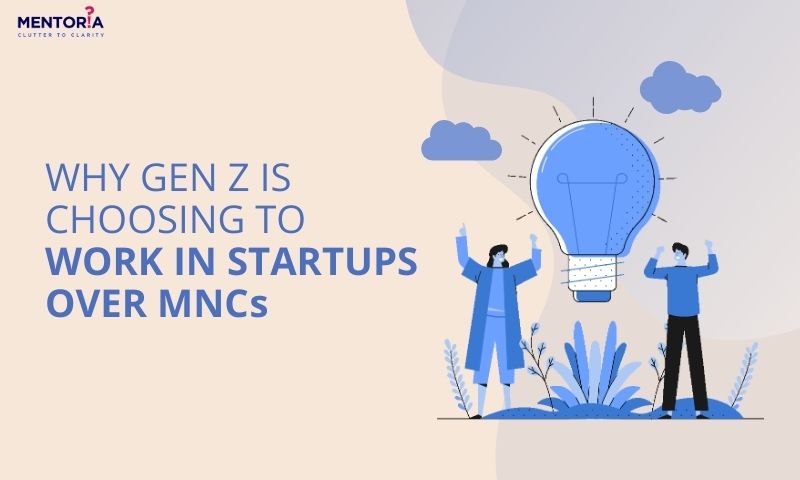How Higher Education Is Being Transformed By AI

How often have you heard the famous proverb, “Necessity is the mother of invention.”? Many times, right? The situation of academics is not the same as it was a decade ago. Keeping up with the rapid pace of education systems is necessary, or you will lose track or be left behind.
It’s better late than never. If you haven’t tried artificial intelligence yet, it’s time to leverage AI to augment higher education. The necessity of adapting to changing times has been the driving force behind many innovations. Over the years, technology has played an increasingly important role in shaping how students learn, and institutions operate.
The latest kid on the block in this technological revolution is artificial intelligence, or AI for short. With its ability to crunch huge amounts of data, recognise patterns, and mimic human cognitive functions to an extent, AI is poised to take higher education to the next level.
Impact of AI on Higher Education
Artificial Intelligence has left a great impact on higher education. Let’s explain this with the help of points discussed below.
Personalised learning and adaptive instruction
Every student likes a personalised learning experience because it’s more productive than conventional teaching methods. By analysing individual student data on performance, preferences, and needs, AI can help deliver a customised learning experience for each student.
This could range from adapting the content and delivery based on a student’s strengths and weaknesses to recommending relevant study materials. When the student is ready, the teacher appears. AI will ensure that no student gets left behind or feels lost in the crowd.
Increased Understanding of Subjects
Artificial intelligence has helped students develop a good understanding of different study concepts. They don’t have to ponder to comprehend something difficult. Instead, they can take advantage of AI-powered paraphrasing tools to convert complicated text into easy text.
For instance, you can leverage free AI paraphrasing tools to learn about various topics. An online paraphrase tool based on artificial intelligence will help you simplify complex writings so that you can understand them better.
AI-powered Assessment and Evaluation
Assessment and evaluation are crucial elements because they help us know about the current status of a student’s abilities.
However, grading exams and assignments is a time-consuming process for teachers. AI can lend a helping hand by automating certain routine tasks like objective evaluations. This frees up faculty time for more engaging activities. AI can also analyse exam patterns to detect anomalies and ensure academic integrity. Its predictive abilities may even take the guesswork out of admissions.
AI-assisted teaching and collaboration
By acting as a digital teaching assistant that is always available, AI can enhance the classroom experience. Instructors will have more one-on-one time with students through AI-mediated support. AI can also facilitate collaborative learning and connect experts across geographic and disciplinary boundaries. As the proverb goes, “two heads are better than one,” and AI multiplies that benefit manifold.
AI-driven research and innovation
AI is powering new frontiers of data-driven discovery across sciences. It can accelerate research by automating mundane tasks, analysing massive datasets, and identifying patterns too complex for humans.
AI assistants can democratise access to expertise. Most importantly, AI will breed new interdisciplinary fields and fuel cutting-edge innovation to solve humanity’s grand challenges.
Considerations for Integrating AI in Higher Education in India
There are some important considerations that should be taken into account while integrating artificial intelligence into higher education in India.
1. Ethical considerations and responsible AI practices
With great power comes great responsibility. Ensuring AI is developed and applied responsibly and for the benefit of humanity is crucial. Institutions must establish guidelines to address privacy, bias, safety, transparency and other ethical concerns surrounding AI.
2. Faculty training and support for AI integration
For AI to truly take flight in academia, instructors need to be empowered through proper training and resources. You can lead a horse to water but you can’t make it drink. Their input is also vital to develop AI solutions that augment rather than replace human expertise and creativity.
3. Infrastructure Availability
To ensure large-scale adoption of AI, infrastructure preparedness in terms of availability of devices, internet connectivity, cloud computing capabilities, data centers need strengthening across the board, especially in rural India.
4. Measuring and evaluating the impact of AI
What gets measured gets managed. To ensure accountability and drive continuous improvement, institutions must establish frameworks for assessing AI outcomes. Metrics could evaluate how AI influences learning gains, research productivity, operational efficiency and other goals.
Suitable regulations and standards around AI safety, accountability and governance need to be developed to encourage responsible AI integration and address issues proactively in India.
Future Directions of AI in Higher Education
AI has started to aid students and teachers throughout the academic journey. That’s why it’s going nowhere. It seems like artificial intelligence has a bright future, not just in higher education but many other important fields.
1. Emerging AI technologies and their potential applications
The best is yet to be. From machine learning and deep learning to blockchain, virtual reality and more – the future of AI is highly promising but unpredictable. Higher education must explore diverse options to leverage AI’s untapped possibilities.
2. Collaborative efforts and partnerships for AI development
Unity is strength, right? To maximise benefits and minimise duplication of efforts, institutions must pull their resources and brainpower together to make the most of AI technology in the long run. Cross-sector collaborations will be pivotal for progress.
3. Shaping the future of AI-driven higher education
Failing to plan is planning to fail. That means nothing should work without a sound plan in place. Proactive strategising is needed to mold AI in a way that enhances the core mission of higher education rather than disrupting it. Visionary leadership is key to successful planning.
4. The future of AI in higher education in India
India has emerged as a global AI hub. However, integrating AI into teaching and learning remains a work in progress. With growing enrollment, AI can help address India’s massive higher education demand and opportunities abound to position the country as an AI-driven education leader.
5. Automated Institutions
Eventually, we may see AI and robotics come together to automate campus operations and create virtual universities with minimal human intervention and maximum accessibility in India.
While AI brings exciting possibilities to transform higher education, its success will depend on addressing challenges of ethics, resources, skills and collaboration in a spirit of shared progress. If leveraged properly with due care for its impact, AI can help take the sector to new heights of excellence, equity and experience.









